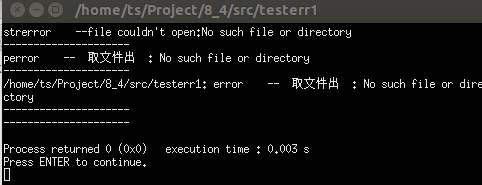- 36.Web前端网页制作 NBA体育主题网页设计实例 大学生期末大作业 html+css+js
d321654987123
体育前端课程设计htmlhtml5javascriptcssjquery
目录一、前言二、网页文件三、网页效果四、代码展示1.HTML2.CSS3.JS五、更多推荐一、前言本实例以“体育”NBA为主题设计,应用html+css+js,包括图片轮翻效果、视频、表单等,12个子页面,代码简洁明了,供大家参考。【关注作者|获取更多源码(2000+个Web案例源码)|优质文章】;您的支持是我创作的动力!【点赞收藏博文】,Web开发、课程设计、毕业设计有兴趣的联系我交流分享,3Q
- git的基本操作
NeoFive
git使用git
教程地址:https://www.liaoxuefeng.com/wiki/0013739516305929606dd18361248578c67b8067c8c017b0001.安装linuxinstallgit:sudoapt-getinstallgitinstallwithsource:先从Git官网下载源码,然后解压,依次输入:./config,make,sudomakeinstall这几
- 数据结构-链表【chapter1】【c语言版】
躺不平的理查德
数据结构数据结构链表c语言visualstudio开发语言
目录1链表的优势:2链表的组成:3.一般使用结构体的形式来实现链表:4.单向链表实现(创建,遍历,释放):4.1代码关键点备注:5.查找节点:5.1.按值查找节点5.2.按位置查找节点5.3查找是否存在某个值5.4.查找链表中最后一个节点5.5查找链表中倒数第k个节点6.删除节点6.1删除头节点6.2删除尾节点6.3.删除指定位置的节点6.4.删除指定值的节点6.5.释放整个链表1链表的优势:动态
- c/c++--静态变量和静态函数(static)
躺不平的理查德
c/c++对比c语言c++算法
目录1c++静态函数和静态变量1.1C++静态成员函数:1.1.1定义与基本语法1.1.2不依赖于实例1.1.3访问限制1.1.4共享数据1.1.5作用域与命名1.1.6工厂函数和工厂方法(常用途)1.2c++静态函数()1.3c++静态变量2c语言静态变量:2.1静态局部变量和静态全局变量:2.2静态函数1c++静态函数和静态变量1.1C++静态成员函数:1.1.1定义与基本语法在C++中,使用
- C语言4种实现两变量值互换的方法
しかし118114
c语言算法开发语言经验分享
(一)创建临时变量首先最直观最简单实现两变量值互换的方法是创建临时变量,把其中一个值放在临时变量中去,最后再放回来。#define_CRT_SECURE_NO_WARNINGS1#includeintmain(){inta=0;intb=0;intc=0;//创建临时变量c,用于存放a,b中的一个值scanf("%d%d",&a,&b);c=a;//把a赋值给ca=b;//将b赋值给a,此时a的值
- Python基于Django的漏洞扫描系统【附源码、文档说明】
Java老徐
Python毕业设计pythondjango漏洞扫描系统漏洞扫描Python漏洞扫描系统PythonDjango
博主介绍:✌Java老徐、7年大厂程序员经历。全网粉丝12w+、csdn博客专家、掘金/华为云/阿里云/InfoQ等平台优质作者、专注于Java技术领域和毕业项目实战✌文末获取源码联系精彩专栏推荐订阅不然下次找不到哟2024-2025年Java毕业设计选题推荐Python基于Django的微博热搜、微博舆论可视化系统(V3.0)基于PythonDjango的北极星招聘数据可视化系统感兴趣的可以先收
- 【Python爬虫①】专栏开篇:夯实Python基础
奔跑吧邓邓子
Python爬虫python爬虫开发语言基础知识
【Python爬虫】专栏简介:本专栏是Python爬虫领域的集大成之作,共100章节。从Python基础语法、爬虫入门知识讲起,深入探讨反爬虫、多线程、分布式等进阶技术。以大量实例为支撑,覆盖网页、图片、音频等各类数据爬取,还涉及数据处理与分析。无论是新手小白还是进阶开发者,都能从中汲取知识,助力掌握爬虫核心技能,开拓技术视野。目录一、引言二、Python语法基础2.1变量2.2数据类型2.3运算
- Blazor 组件库 BootstrapBlazor 中Editor组件介绍
虚幻私塾
python计算机
优质资源分享学习路线指引(点击解锁)知识定位人群定位Python实战微信订餐小程序进阶级本课程是pythonflask+微信小程序的完美结合,从项目搭建到腾讯云部署上线,打造一个全栈订餐系统。Python量化交易实战入门级手把手带你打造一个易扩展、更安全、效率更高的量化交易系统组件介绍Editor组件是对Summernote组件的二次封装。组件分为div模式和editor模式。默认状态下edito
- 开源ERP系统odoo的安装与配置
catmes
开源ERPpythonpostgresqlOpenERP
开源ERP系统odoo的安装与配置安装下载源码安装PostgreSQL安装Python3下载odoo依赖配置启动安装安装方式有两种:分发包安装:https://www.odoo.com/documentation/16.0/administration/install/packages.html源码安装:https://www.odoo.com/documentation/16.0/adminis
- 2月第二讲:mybatis是如何识别分表位的
2501_90442144
mybatis
带着问题,我花了不少时间深入了读了一下这部分的源码,终于搞清楚了,借本文分享一下。本文主要环境是mybatis-plus-boot-starter3.4.3,不过用的基本上仍然是mybatis的特性。流程图以查询为例,可以先看下流程图,大致了解一下整个过程。关键的类和对象在流程图里出现了一些类和其实例化的对象,有必要选其中关键的介绍一下。MappedStatement类全名org.apache.i
- MySQL 数据库定时任务及进阶学习
一只小灿灿
数据库数据库mysql学习
一、引言在当今数字化时代,数据管理的高效性和自动化至关重要。MySQL作为一款广泛应用的开源关系型数据库管理系统,提供了强大的功能来满足各种数据处理需求。其中,定时任务执行功能对于自动化数据操作、维护数据完整性以及优化系统性能具有关键作用。通过合理设置定时任务,数据库管理员和开发人员能够实现诸如数据备份、数据清理、报表生成等重复性任务的自动化执行,从而节省大量时间和精力,将更多资源投入到核心业务逻
- HarmonyOS鸿蒙最全【PHP】PHP入门指南:从基础到进阶_php网络编程入门与进阶,2024年最新鸿蒙基础面试题及答案
2401_84872585
鸿蒙面试学习
网上学习资料一大堆,但如果学到的知识不成体系,遇到问题时只是浅尝辄止,不再深入研究,那么很难做到真正的技术提升。需要这份系统化的资料的朋友,可以戳这里获取一个人可以走的很快,但一群人才能走的更远!不论你是正从事IT行业的老鸟或是对IT行业感兴趣的新人,都欢迎加入我们的的圈子(技术交流、学习资源、职场吐槽、大厂内推、面试辅导),让我们一起学习成长!PHP标记:了解PHP的起始和结束标记,以及如何嵌入
- 前端性能优化全面指南:从基础到进阶
尤山海
前端性能优化
前端性能优化全面指南:从基础到进阶欢迎来到前端性能优化的全面指南!本文将带你深入了解从基础到进阶的各种优化策略,帮助你全面提升网页的加载速度和用户体验。1.关键渲染路径(CriticalRenderingPath)优化最小化关键资源:确保页面加载的初始请求尽可能少,合并CSS和JavaScript文件,使用内联CSS和JavaScript(对于非常小的脚本和样式)。异步/延迟加载非关键资源:使用a
- c语言编写:打印楼梯,同时在楼梯上方打印两个笑脸。
年*D-清仁
c语言开发语言
题目要求:打印楼梯,同时在楼梯上方打印两个笑脸。程序分析:用i控制行,j来控制列,j根据i的变化来控制输出黑方格的个数。#include#include#includeintmain(){SetConsoleOutputCP(437);chara=219;printf("^_^^_^\n");for(inti=0;i<=9;i++){for(intj=0;j<=i;j++)printf("%c",
- 机器人建模中移动关节如何建立坐标系_机器人工程师进阶之路(二)6轴机械臂D-H法建模...
weixin_40006977
机械臂中的四元素转为旋转矩阵
本文作者为我司颜值担当精神小伙@梁政,经授权转载,原文发布于其专栏《机器人进阶之路》,欢迎大家支持交流。T矩阵中一共有12个有效参数,然而我们只需要6个量来获取位姿,感觉很不划算,而且有些参数根本用不上。因此有两位大佬,D大佬和H大佬提出了DH法。写这部分的时候,我拿出了两本书IntroductiontoRobotics,MechanicsandControlThirdEdition,JohnJ.
- 蓝桥杯——Python初级入门
YAmlei
蓝桥杯——Python蓝桥杯python
蓝桥杯中的Python是近段时间才开设的一项比赛,网上大部门只有关于Java和C语言的题解,写这篇博客算是自己的对参与蓝桥杯Python组学习的记录和找到自己不足的方面。目录一、运算符练习二、分支练习一、运算符练习题目1003:[编程入门]密码破译要将"China"译成密码,译码规律是:用原来字母后面的第4个字母代替原来的字母.例如,字母"A"后面第4个字母是"E"."E"代替"A"。因此,"Ch
- Kubernetes Python Client 教程
伍妲葵
KubernetesPythonClient教程pythonOfficialPythonclientlibraryforkubernetes项目地址:https://gitcode.com/gh_mirrors/python1/python1.项目介绍KubernetesPythonClient是一个官方支持的库,它允许开发者在Python中与Kubernetes集群进行交互。这个客户端提供了对K
- C语言蓝桥杯1003: [编程入门]密码破译
年*D-清仁
c语言蓝桥杯开发语言
要将"China"译成密码,译码规律是:用原来字母后面的第4个字母代替原来的字母.例如,字母"A"后面第4个字母是"E"."E"代替"A"。因此,"China"应译为"Glmre"。请编一程序,用赋初值的方法使cl、c2、c3、c4、c5五个变量的值分别为,’C’、’h’、’i’、’n’、’a’,经过运算,使c1、c2、c3、c4、c5分别变为’G’、’l’、’m’、’r’、’e’,并输出。变量初
- MediaPlayer 源码分析
踏雪羽翼
musicandroid音频java
MediaPlayer有create(),prepare(),prepareAsync(),setDataSource(),start(),pause(),release()等方法,MediaPlayer代码路径是在frameworks/base/media/java/android/media/MediaPlayer.java,MediaPlayer继承PlayerBase,并且实现了Subti
- 力扣 第1题:两数之和(Java)
曼城铁闸
java算法
有人相爱,有人开车看海,有人力扣第一题就做不出来……第一题两数之和(万恶之源),劝退了不少小……在这里整理一下这道题的两种Java解法。题目:给定一个整数数组nums和一个整数目标值target,请你在该数组中找出和为目标值target的那两个整数,并返回它们的数组下标。你可以假设每种输入只会对应一个答案。但是,数组中同一个元素在答案里不能重复出现。可以按任意顺序返回答案。进阶:你可以想出一个时间
- Web安全攻防:渗透测试实战指南(徐焱)(Z-Library)
快乐的红中
渗透测试web安全安全xss网络javapython
目录作者简介······目录······《Web安全攻防:渗透测试实战指南》由浅入深、全面、系统地介绍了当前流行的高危漏洞的攻击手段和防御方法,并力求语言通俗易懂,举例简单明了,便于读者阅读、领会。结合具体案例进行讲解,可以让读者身临其境,快速地了解和掌握主流的漏洞利用技术与渗透测试技巧。阅读《Web安全攻防:渗透测试实战指南》不要求读者具备渗透测试的相关背景,如有相关经验在理解时会更有帮助。《W
- 小白都能看懂的 textarea 的用法
瑶琴AI前端
HTML前端html
文章导读:AI辅助学习前端,包含入门、进阶、高级部分前端系列内容,当前是HTML的部分,公众号会持续更新,适合零基础的朋友,已有前端工作经验的可以不看,也可以当作基础知识回顾。当在HTML表单中需要用户输入多行文本时,会使用元素,它是一个文本域控件。文本域允许用户输入多行文本,例如评论、反馈等长文本内容。以下是元素的详细用法:请输入您的反馈意见:在上面的示例中,元素被用于收集用户的反馈意见。下面详
- 零基础轻松掌握 select
瑶琴AI前端
HTML前端html
文章导读:AI辅助学习前端,包含入门、进阶、高级部分前端系列内容,当前是HTML的部分,公众号会持续更新,适合零基础的朋友,已有前端工作经验的可以不看,也可以当作基础知识回顾。标签的用法标签用于创建下拉列表,允许用户从预定义的选项中进行选择。下面是关于标签的详细介绍。1.创建元素2.添加选项元素在标签内添加一个或多个标签,每个表示一个可选项。AppleBananaOrangeGrape3.设置选项
- 【设计模式】【行为型模式】策略模式(Strategy)
FLZJ_KL
设计模式策略模式java设计模式Java基础
hi,我不是一名外包公司的员工,也不会偷吃茶水间的零食,我的梦想是能写高端CRUD2025本人正在沉淀中…博客更新速度++欢迎点赞、收藏、关注,跟上我的更新节奏当你的天空突然下了大雨,那是我在为你炸乌云文章目录一、入门什么是策略模式?为什么需要策略模式?怎样实现策略模式?二、策略模式在源码中的运用2.1、JavaCollections中的排序策略2.2、Spring中的资源加载策略三、总结参考一、
- 【设计模式】【行为型模式】观察者模式(Observer)
FLZJ_KL
设计模式设计模式观察者模式java
hi,我不是一名外包公司的员工,也不会偷吃茶水间的零食,我的梦想是能写高端CRUD2025本人正在沉淀中…博客更新速度++欢迎点赞、收藏、关注,跟上我的更新节奏当你的天空突然下了大雨,那是我在为你炸乌云文章目录一、入门什么是观察者模式?为什么要观察者模式?怎么实现观察者模式?二、观察者模式在源码中运用Java中的java.util.Observer和java.util.ObservableObse
- 2025年——【寒假】自学黑客计划(网络安全)
网安CILLE
web安全网络安全网络安全linux
CSDN大礼包:基于入门网络安全/黑客打造的:黑客&网络安全入门&进阶学习资源包前言什么是网络安全网络安全可以基于攻击和防御视角来分类,我们经常听到的“红队”、“渗透测试”等就是研究攻击技术,而“蓝队”、“安全运营”、“安全运维”则研究防御技术。如何成为一名黑客很多朋友在学习安全方面都会半路转行,因为不知如何去学,在这里,我将这个整份答案分为黑客(网络安全)入门必备、黑客(网络安全)职业指南、黑客
- html css js网页制作成品——HTML+CSS+js情人节网页设计(5页)附源码
软件技术NINI
htmlcssjavascript
目录一、网站题目二、✍️网站描述三、网站介绍四、网站效果五、代码实现HTML
- C语言函数指针与指针函数,数组的指针与指针的数组
窜天猴牛逼
c语言开发语言
数组的指针:int(*p)[10]表示形式:指针的数组:int*p[10];数组里面包含10个指针变量。指针函数:函数的返回值为指针;注意:1.对于局部变量,不能通过函数返回其地址,因为其值在操作完之后会内存销毁,此时指针就是一个野指针。2.对于此类问题,可以通过static解决,当然,具有全局静态的变量,例如全局变量可以返回其地址。malloc函数:向堆区申请内存空间;size_t是类型说明,s
- 关于invoke与call的一些观点
乘风而来的思绪
问题解决箱杂侃分享园游戏c/c++
在编程或阅读源码时,经常会碰到invoke与call这两个方法名或者名词,按照现在的中文翻译来看,都是“调用”的意思,但两者到底是什么关系呢,秉着好奇的观点,查询了一些资料,仍然没有弄太明白,就把搜集到的一些观点放在这里,供参考参考:1.来自于ms的术语搜索:参考链接http://www.microsoft.com/Language/en-US/Search.aspxcall:调用Totransf
- C语言OPEN函数详解
乘风而来的思绪
编程语言语言caccesstranslationpathborland
open是一个非标准的低级文件I/O函数,返回的是文件的低级句柄,原型:intopen(char*path,intaccess,...);open是一个可变参数的函数实现,后面的可变参数通常表示unsignedmode,mode参数是否存在要看access的值,path是文件的路径。access和mode的可取值通常在FCNTL.h里面定义,access的可取值如下:#defineO_RDONLY
- springmvc 下 freemarker页面枚举的遍历输出
杨白白
enumfreemarker
spring mvc freemarker 中遍历枚举
1枚举类型有一个本地方法叫values(),这个方法可以直接返回枚举数组。所以可以利用这个遍历。
enum
public enum BooleanEnum {
TRUE(Boolean.TRUE, "是"), FALSE(Boolean.FALSE, "否");
- 实习简要总结
byalias
工作
来白虹不知不觉中已经一个多月了,因为项目还在需求分析及项目架构阶段,自己在这段
时间都是在学习相关技术知识,现在对这段时间的工作及学习情况做一个总结:
(1)工作技能方面
大体分为两个阶段,Java Web 基础阶段和Java EE阶段
1)Java Web阶段
在这个阶段,自己主要着重学习了 JSP, Servlet, JDBC, MySQL,这些知识的核心点都过
了一遍,也
- Quartz——DateIntervalTrigger触发器
eksliang
quartz
转载请出自出处:http://eksliang.iteye.com/blog/2208559 一.概述
simpleTrigger 内部实现机制是通过计算间隔时间来计算下次的执行时间,这就导致他有不适合调度的定时任务。例如我们想每天的 1:00AM 执行任务,如果使用 SimpleTrigger,间隔时间就是一天。注意这里就会有一个问题,即当有 misfired 的任务并且恢复执行时,该执行时间
- Unix快捷键
18289753290
unixUnix;快捷键;
复制,删除,粘贴:
dd:删除光标所在的行 &nbs
- 获取Android设备屏幕的相关参数
酷的飞上天空
android
包含屏幕的分辨率 以及 屏幕宽度的最大dp 高度最大dp
TextView text = (TextView)findViewById(R.id.text);
DisplayMetrics dm = new DisplayMetrics();
text.append("getResources().ge
- 要做物联网?先保护好你的数据
蓝儿唯美
数据
根据Beecham Research的说法,那些在行业中希望利用物联网的关键领域需要提供更好的安全性。
在Beecham的物联网安全威胁图谱上,展示了那些可能产生内外部攻击并且需要通过快速发展的物联网行业加以解决的关键领域。
Beecham Research的技术主管Jon Howes说:“之所以我们目前还没有看到与物联网相关的严重安全事件,是因为目前还没有在大型客户和企业应用中进行部署,也就
- Java取模(求余)运算
随便小屋
java
整数之间的取模求余运算很好求,但几乎没有遇到过对负数进行取模求余,直接看下面代码:
/**
*
* @author Logic
*
*/
public class Test {
public static void main(String[] args) {
// TODO A
- SQL注入介绍
aijuans
sql注入
二、SQL注入范例
这里我们根据用户登录页面
<form action="" > 用户名:<input type="text" name="username"><br/> 密 码:<input type="password" name="passwor
- 优雅代码风格
aoyouzi
代码
总结了几点关于优雅代码风格的描述:
代码简单:不隐藏设计者的意图,抽象干净利落,控制语句直截了当。
接口清晰:类型接口表现力直白,字面表达含义,API 相互呼应以增强可测试性。
依赖项少:依赖关系越少越好,依赖少证明内聚程度高,低耦合利于自动测试,便于重构。
没有重复:重复代码意味着某些概念或想法没有在代码中良好的体现,及时重构消除重复。
战术分层:代码分层清晰,隔离明确,
- 布尔数组
百合不是茶
java布尔数组
androi中提到了布尔数组;
布尔数组默认的是false, 并且只会打印false或者是true
布尔数组的例子; 根据字符数组创建布尔数组
char[] c = {'p','u','b','l','i','c'};
//根据字符数组的长度创建布尔数组的个数
boolean[] b = new bool
- web.xml之welcome-file-list、error-page
bijian1013
javaweb.xmlservleterror-page
welcome-file-list
1.定义:
<welcome-file-list>
<welcome-file>login.jsp</welcome>
</welcome-file-list>
2.作用:用来指定WEB应用首页名称。
error-page1.定义:
<error-page&g
- richfaces 4 fileUpload组件删除上传的文件
sunjing
clearRichfaces 4fileupload
页面代码
<h:form id="fileForm"> <rich:
- 技术文章备忘
bit1129
技术文章
Zookeeper
http://wenku.baidu.com/view/bab171ffaef8941ea76e05b8.html
http://wenku.baidu.com/link?url=8thAIwFTnPh2KL2b0p1V7XSgmF9ZEFgw4V_MkIpA9j8BX2rDQMPgK5l3wcs9oBTxeekOnm5P3BK8c6K2DWynq9nfUCkRlTt9uV
- org.hibernate.hql.ast.QuerySyntaxException: unexpected token: on near line 1解决方案
白糖_
Hibernate
文章摘自:http://blog.csdn.net/yangwawa19870921/article/details/7553181
在编写HQL时,可能会出现这种代码:
select a.name,b.age from TableA a left join TableB b on a.id=b.id
如果这是HQL,那么这段代码就是错误的,因为HQL不支持
- sqlserver按照字段内容进行排序
bozch
按照内容排序
在做项目的时候,遇到了这样的一个需求:
从数据库中取出的数据集,首先要将某个数据或者多个数据按照地段内容放到前面显示,例如:从学生表中取出姓李的放到数据集的前面;
select * fro
- 编程珠玑-第一章-位图排序
bylijinnan
java编程珠玑
import java.io.BufferedWriter;
import java.io.File;
import java.io.FileWriter;
import java.io.IOException;
import java.io.Writer;
import java.util.Random;
public class BitMapSearch {
- Java关于==和equals
chenbowen00
java
关于==和equals概念其实很简单,一个是比较内存地址是否相同,一个比较的是值内容是否相同。虽然理解上不难,但是有时存在一些理解误区,如下情况:
1、
String a = "aaa";
a=="aaa";
==> true
2、
new String("aaa")==new String("aaa
- [IT与资本]软件行业需对外界投资热情保持警惕
comsci
it
我还是那个看法,软件行业需要增强内生动力,尽量依靠自有资金和营业收入来进行经营,避免在资本市场上经受各种不同类型的风险,为企业自主研发核心技术和产品提供稳定,温和的外部环境...
如果我们在自己尚未掌握核心技术之前,企图依靠上市来筹集资金,然后使劲往某个领域砸钱,然
- oracle 数据块结构
daizj
oracle块数据块块结构行目录
oracle 数据块是数据库存储的最小单位,一般为操作系统块的N倍。其结构为:
块头--〉空行--〉数据,其实际为纵行结构。
块的标准大小由初始化参数DB_BLOCK_SIZE指定。具有标准大小的块称为标准块(Standard Block)。块的大小和标准块的大小不同的块叫非标准块(Nonstandard Block)。同一数据库中,Oracle9i及以上版本支持同一数据库中同时使用标
- github上一些觉得对自己工作有用的项目收集
dengkane
github
github上一些觉得对自己工作有用的项目收集
技能类
markdown语法中文说明
回到顶部
全文检索
elasticsearch
bigdesk elasticsearch管理插件
回到顶部
nosql
mapdb 支持亿级别map, list, 支持事务. 可考虑做为缓存使用
C
- 初二上学期难记单词二
dcj3sjt126com
englishword
dangerous 危险的
panda 熊猫
lion 狮子
elephant 象
monkey 猴子
tiger 老虎
deer 鹿
snake 蛇
rabbit 兔子
duck 鸭
horse 马
forest 森林
fall 跌倒;落下
climb 爬;攀登
finish 完成;结束
cinema 电影院;电影
seafood 海鲜;海产食品
bank 银行
- 8、mysql外键(FOREIGN KEY)的简单使用
dcj3sjt126com
mysql
一、基本概念
1、MySQL中“键”和“索引”的定义相同,所以外键和主键一样也是索引的一种。不同的是MySQL会自动为所有表的主键进行索引,但是外键字段必须由用户进行明确的索引。用于外键关系的字段必须在所有的参照表中进行明确地索引,InnoDB不能自动地创建索引。
2、外键可以是一对一的,一个表的记录只能与另一个表的一条记录连接,或者是一对多的,一个表的记录与另一个表的多条记录连接。
3、如
- java循环标签 Foreach
shuizhaosi888
标签java循环foreach
1. 简单的for循环
public static void main(String[] args) {
for (int i = 1, y = i + 10; i < 5 && y < 12; i++, y = i * 2) {
System.err.println("i=" + i + " y="
- Spring Security(05)——异常信息本地化
234390216
exceptionSpring Security异常信息本地化
异常信息本地化
Spring Security支持将展现给终端用户看的异常信息本地化,这些信息包括认证失败、访问被拒绝等。而对于展现给开发者看的异常信息和日志信息(如配置错误)则是不能够进行本地化的,它们是以英文硬编码在Spring Security的代码中的。在Spring-Security-core-x
- DUBBO架构服务端告警Failed to send message Response
javamingtingzhao
架构DUBBO
废话不多说,警告日志如下,不知道有哪位遇到过,此异常在服务端抛出(服务器启动第一次运行会有这个警告),后续运行没问题,找了好久真心不知道哪里错了。
WARN 2015-07-18 22:31:15,272 com.alibaba.dubbo.remoting.transport.dispatcher.ChannelEventRunnable.run(84)
- JS中Date对象中几个用法
leeqq
JavaScriptDate最后一天
近来工作中遇到这样的两个需求
1. 给个Date对象,找出该时间所在月的第一天和最后一天
2. 给个Date对象,找出该时间所在周的第一天和最后一天
需求1中的找月第一天很简单,我记得api中有setDate方法可以使用
使用setDate方法前,先看看getDate
var date = new Date();
console.log(date);
// Sat J
- MFC中使用ado技术操作数据库
你不认识的休道人
sqlmfc
1.在stdafx.h中导入ado动态链接库
#import"C:\Program Files\Common Files\System\ado\msado15.dll" no_namespace rename("EOF","end")2.在CTestApp文件的InitInstance()函数中domodal之前写::CoIniti
- Android Studio加速
rensanning
android studio
Android Studio慢、吃内存!启动时后会立即通过Gradle来sync & build工程。
(1)设置Android Studio
a) 禁用插件
File -> Settings... Plugins 去掉一些没有用的插件。
比如:Git Integration、GitHub、Google Cloud Testing、Google Cloud
- 各数据库的批量Update操作
tomcat_oracle
javaoraclesqlmysqlsqlite
MyBatis的update元素的用法与insert元素基本相同,因此本篇不打算重复了。本篇仅记录批量update操作的
sql语句,懂得SQL语句,那么MyBatis部分的操作就简单了。 注意:下列批量更新语句都是作为一个事务整体执行,要不全部成功,要不全部回滚。
MSSQL的SQL语句
WITH R AS(
SELECT 'John' as name, 18 as
- html禁止清除input文本输入缓存
xp9802
input
多数浏览器默认会缓存input的值,只有使用ctl+F5强制刷新的才可以清除缓存记录。如果不想让浏览器缓存input的值,有2种方法:
方法一: 在不想使用缓存的input中添加 autocomplete="off"; eg: <input type="text" autocomplete="off" name
